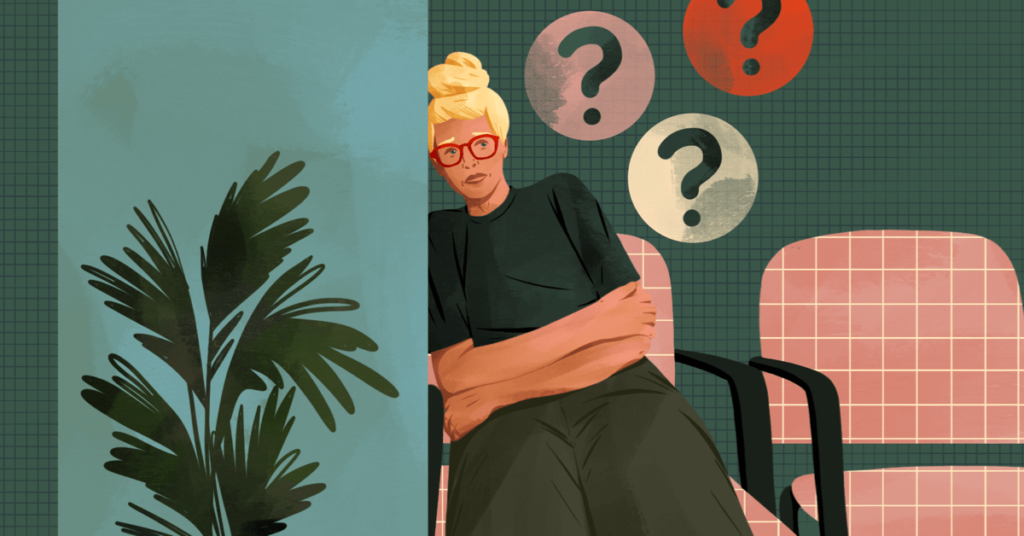
Uncontrollable. Insatiable. Seemingly brought on for no reason.
The scratching that can accompany an MS diagnosis is one of the most frustrating symptoms to deal with. It’s a neuropathic itch — that is, caused by messed up nerves signals from the brain, which makes the itching sensation impossible to stop. No amount of scratching lessens its intensity.
To learn more about how you cope with this symptom, we reached out on the MultipleSclerosis.net Facebook page, asking, “Have you ever had that uncontrollable itch that feels like bugs crawling all over you?”
More than 300 of you reacted, and more than 70 of you weighed in. Here’s what you had to say.
“I have bruised myself by scratching.”
Because the itching is a signal switched on by the brain, there’s little you can do physically to change what’s happening. But the desire to act is relentless. Several of you mentioned that you can’t help but continue scratching, even when it leads to bleeding or bruises.
“OMG yes, and it’s insane! Sometimes I am positive that a spider is crawling on me and there isn’t. I have bruised myself by scratching.”
“Always, it’s horrible. It won’t stop being itchy till I scratch the hell out of it, then I end up with sores and scratch marks.”
“Yes, for me it started about six years before I was diagnosed with MS.”
For many of you, the itching came on long before you even knew you had MS. For others of you, you didn’t know that the itching was related to MS until you read the Facebook post on MultipleSclerosis.net. Until you have the MS diagnosis and the understanding that this itching is related to the diagnosis, it can seem mysterious — which is more frustrating than anything else. Too often, we can’t even begin to treat that which we can’t categorize and name.
“Yes, three years before I actually had the initial onset of my disease. It was absolutely horrible. Now I get itching on the palms of my hands and fingers. It’s really annoying more than anything.”
“Yes, but I didn’t realize it had anything to do with my MS!”
“Just as you are going to sleep is when it hits hard.”
Although the onset of symptoms can appear random, it can be triggered by stress. For many people, stress worsens after the workday, as that is when the mind no longer has tasks to focus on, and instead, can start spinning with worry. Thus, bedtime can be one of the most challenging times of day as we lie in bed with nothing but our thoughts.
“OMG, I have been having this the past couple days. Feel like my skin is crawling. More so in the evening.”
“Yes, and it’s like fire ants! Just as you are going to sleep is when it hits hard.”
“Yes, very frequently especially at night along with a feeling of electric shock on nerves on my right side.”
“This is the only symptom that seems to be better when I’m taking my Neurontin.”
Several anti-epileptic drugs, including Neurontin, aka Gabapentin, and Lacosamide, aka Vimpat, were developed to treat seizures caused by shingles, but have also been found to provide relief to the nerve-related problem of the MS itching. Several of you named these drugs, citing that they alleviate much of the itching. If this sounds like a solution that might work for you, start with your regular doctor or ask about seeing a neurologist.
“Honestly, this is the only symptom that seems to be better when I’m taking my Neurontin… The random creepy-crawling feeling and the pins-and-needles feeling, which is nice. I used to feel like something was crawling across my face and biting me.”
“Your MS specialist should be able to help you. If it’s something that is out of control, a drug such as Gabapentin can help. Some topical routes can help soothe but because it’s neurological, just know this is coming from the brain. Cool clothing and lowering your stress can help. If needed, talk to your neurologist.”
“I take Vimpat, a seizure med, to control it—because otherwise, I will scratch till I bleed and bruise.”
“My doctor gives me a prescription itch cream.”
For others, a simpler solution may work. Anti-itch creams are easier to get and might be a good choice for a first step in solving the problem. Beyond creams, there are alternative therapies available as well.
“This happens all the time. I used to take pills to stop the itching, but Medicare quit covering them. So now my doctor gives me a prescription itch cream and it helps!”
“I go for light treatment. It works!”
We want to say thank you to everyone who shared their stories and solutions on the MultipleSclerosis.net Facebook page. Check out the comic that inspired these responses here.







 Paying close attention to what you eat is important if you live with multiple sclerosis (MS). Although there is no special “MS diet,” the foods you eat can make a big difference in your overall health. Your diet may also affect your energy level and your bowel and bladder function.1
Paying close attention to what you eat is important if you live with multiple sclerosis (MS). Although there is no special “MS diet,” the foods you eat can make a big difference in your overall health. Your diet may also affect your energy level and your bowel and bladder function.1

